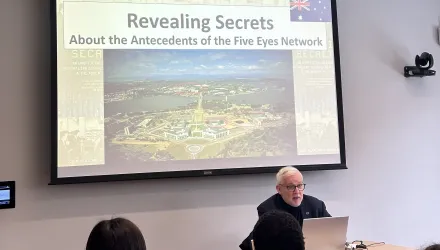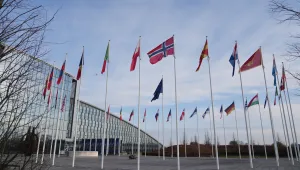As part of a continued effort to respond to the on-going changes in the Middle East, the Middle East Initiative co-sponsored an event Wednesday, March 9 on political dissent in Arabic literature. The event featured four Harvard scholars discussing popular works of dissent and their relevance to current political uprisings in the Arab world.
William Granara, Director of Modern Language Programs in the Department of Near Eastern Languages and Civilizations, presented “Reading Arabic Fiction as Social/Political Text” and “The Saudi Novel as Political and Social Critique”, covering concepts of religious extremism, stratification, and urban development present in Saudi literature.
Nevenka Korica, Preceptor for Arabic at the Department of Near Eastern Language and Civilizations, addressed the use of poetic verses in recent protests on banners, stickers and websites in her presentation “Poetry as Fuel for Revolt”.
Allison Blecker, PhD student in the Department of Near Eastern Languages and Civilizations, used Khaled Al-Khamissi’s Taxi to illustrate the political, social and economic realities that instigated the Egyptian revolution, as described through the unique perspective of taxi drivers in Egypt.
Benjamin Smith, PhD Candidate in Arabic and Islamic Studies in the Department of Near Eastern Languages and Civilizations, presented “Moroccan Voices of Dissent from Ben Salem Himmich’s My Tormentor” and described the symbolic power dynamics of torture in Morocco.
Over 25 students, faculty and members of the Harvard and Boston community attended. The panel was co-sponsored by the Department of Near Eastern Languages and Civilizations at Harvard University and the Outreach Center at the Center for Middle Eastern Studies.
Maalouf, Michelle Lee. “MEI Co-Hosts Event on Dissent in Arabic Literature.” March 18, 2011


